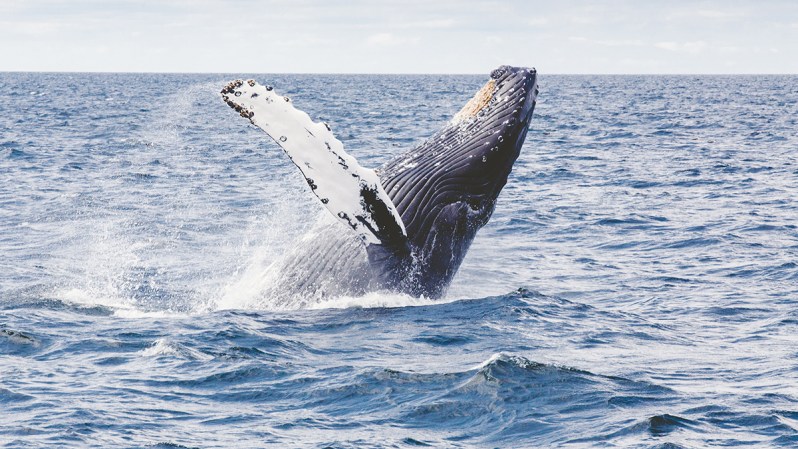
The modern (read 19th century) whaling industry has deep roots in Massachusetts. The storied history of Moby Dick begins on the island of Nantucket and coastal New Bedford was once called “The City That Lit the World,” so it’s fitting that the state recently debuted an official and comprehensive Whale Trail.
The trail took more than six months to design. Considering the breadth of history (300 years) and distance (around 200 miles) it covers, that’s no surprise. The trail consists of 40 whale-themed stops including historical lighthouses, ocean excursions, guided tours, and simple whale-related statues. All but one are located near the Atlantic Coast, but a single stop in the Western Massachusetts town of Pittsfield means the trail technically spans the entire width of the state.
The trail offers a “choose-your-own-adventure” style of exploration with stops focused on history, art, nature, architecture, and culture. Travelers can opt to do as much or as little of the trail as they like. Tuckamore Aviation provides a sky-high view of the state’s entire coast. From 1,000 feet up, with the helicopter doors off, passengers can take in all of Boston Harbor and beyond. It’s a great first “stop” to gain an appreciation of the vast ground the trail covers.
Travelers looking for a more up-close experience can join one of the handfuls of whale-watching expeditions from Nantucket to Hyannis to Boston. Wildlife lovers will find hundreds of marine species, including many whale-related exhibits, at Boston’s New England Aquarium. History buffs can trace the lineage of the whaling industry along the shores of Massachusetts from the Harvard Museum of Natural History in Boston to New Bedford’s Old Whaling Church to the Nantucket Historical Association Research Library & Archives. Among the official stops are plenty of minor attractions as well. Provincetown, for example, is home to the Center for Coastal Studies, a 40-year-old educational center with a unique, in-depth exhibit focused on a single humpback whale named Spinnaker.
Many of the stops center around New Bedford Harbor, making it an ideal spot for weekend travelers to cover a lot of whaling-related history in a short amount of time. Within the city’s compact downtown lies the New Bedford Whaling Museum (the most comprehensive museum of its kind in the world), Seamen’s Bethel (the real-world “Whaleman’s Chapel” from Melville’s classic novel), and the Rotch-Jones-Duff House and Garden Museum (one of the best-preserved period homes from the days of whaling). What’s more: most of the downtown is federally recognized as part of the New Bedford Whaling National Historical Park.



